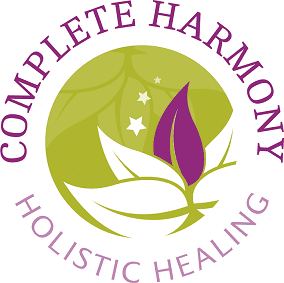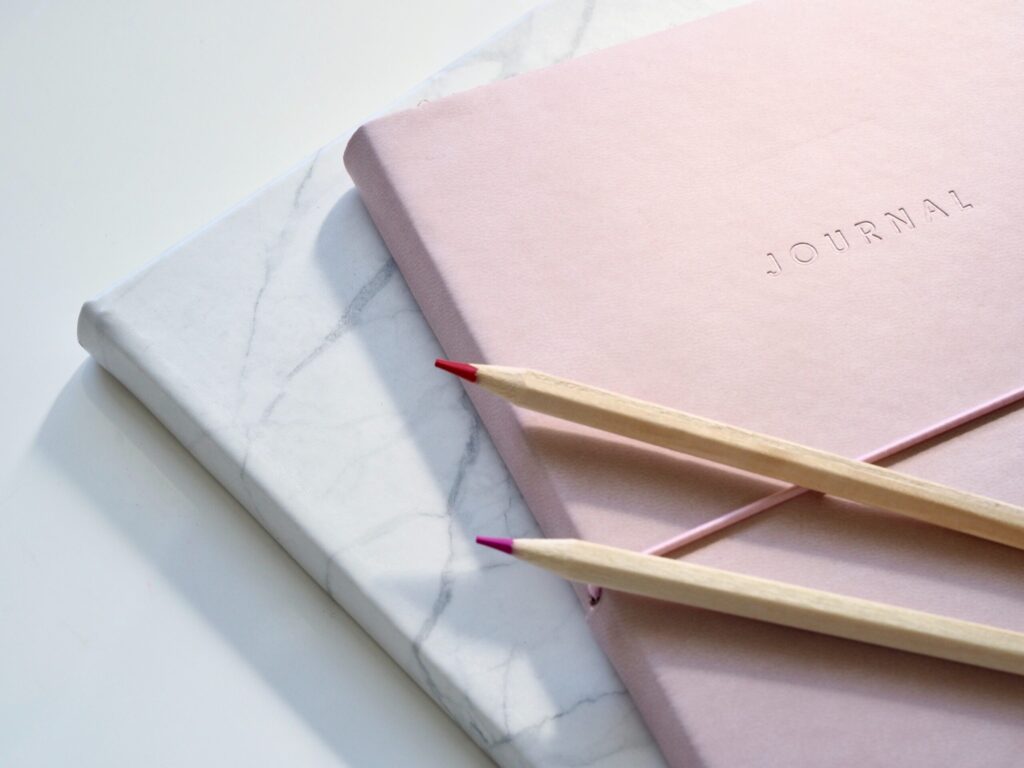Over the past few months, I’ve seen an increase in the number of people who want to know how to start journaling. This isn’t surprising as several studies have been done proving the many mental and emotional benefits of journaling.
When you’re experiencing feelings of isolation, loneliness or overwhelm, not knowing how to deal with these emotions, can cause you to also feel stressed, anxious or worried too. The ability to release thoughts that create feelings of anxiety, stress or worry is a blessing. Journaling is a great self-help tool to help with this which we can all access. Simply put, journaling is a way of expressing your thoughts, emotions and feelings through your writing. Getting your thoughts out of your head and onto paper so that you can start the process of understanding and dealing with them in positive ways.
Keeping a journal differs from keeping a diary. A diary is generally used to record and store information about what happened during your day or at an event; a chronological record if events or activities. A journal is more often used as a tool for: –
- writing about something specific with the intention of using it to dig deeper into your thoughts and feelings around it.
- recording, recognising, and reflecting on your thoughts and feelings around a situation or an event.
- helping you with personal development and growth in a particular area; your careers, hobbies, relationships, and situations.
Why Journal
When clients of talking therapists (counsellors, psychotherapists etc.) arrive with chronic anxiety, substance abuse, PTSD, low mood, depression etc., many talking therapists use journaling within their sessions as one of their tools. Used in this way, clients are encouraged to release negative thoughts and feelings and improve their mental health. Journaling can be used for several different reasons and releasing negative thoughts and feelings for therapeutic healing is just one way.
My 5 top reasons for journaling are:
 1. Organising your thoughts – Journaling helps to develop the left side of your brain (the creative, emotional side) and the right side of your brain (the logical, rational side). Writing things down allows you to declutter your thoughts. Sorting your thoughts will reduce feelings of overwhelm, making it easier for you to make decisions and take appropriate action when you need to.
1. Organising your thoughts – Journaling helps to develop the left side of your brain (the creative, emotional side) and the right side of your brain (the logical, rational side). Writing things down allows you to declutter your thoughts. Sorting your thoughts will reduce feelings of overwhelm, making it easier for you to make decisions and take appropriate action when you need to.
2. A place to be yourself – Your journal is a private place and it’s for your eyes only. Here you can write your true thoughts and feelings without censorship. When you are able to write freely, you will start to learn and understand what’s behind your thoughts and behaviours.
3. Store your memories – Journaling can be used as a place to store your memories. As well as writing your thoughts and feelings, your journal can include photos, drawings, menu cards, event tickets etc. Bullet or art journals are often used in this way. Every entry will help you to capture what was happening at a certain moment in time and how you felt at that time.
4. Encourage self-reflection & growth – Whether you’re using journaling for creativity, goal setting, therapeutic reasons or personal development, an important part of journaling is reflecting on what you have written. This is where the learning is as you will be able to see what you can change, what you can’t change, how far you have come, and what has changed, improved, or stayed the same.
5. Inspire ideas and achieve your goals – It’s a known fact that when you write your goals down, you’re more likely to achieve them. A goal-setting journal or a creative journal will help you to keep track of your plans and track your progress.
How to begin
Begin by deciding why you want to journal. You’re most likely wanting to release or understand more about yourself and experience some personal growth. Knowing what specifically you want to achieve and why, will help you to choose the best method and type of journaling to do. There are many different journaling techniques to choose from.
I go into a lot more detail on the how, what, when and why of journaling during my workshops which I run as group sessions or you can book as a 1-2-1.
Journaling reasons & techniques
There are many different journaling tools and techniques. When journaling try to choose those that suit your writing style and your personality. You can use each on their own or use a few of them together. The examples below are three reasons to journal and just three techniques or tools that can work well with each to help you achieve your goal.
Reason 1: Self-reflection – Journaling prompts are a good tool if you’re new to journaling as they will help to guide your thoughts, helping you to discover how you feel about different things. You can start by having a set of questions to ask yourself. Some examples are: –
- How do I feel right now?
- What five things am I grateful for right now?
- What qualities do I love about myself?
Having a notebook or gratitude journal where you can write your prompts is a good tool to help you with self-reflection.
Reason 2: Release your thoughts – Freewriting is a great technique to help you release and then get closer to understanding your thoughts and feelings. With this technique, you set a timer for about 10 minutes or decide to write 2 sides of A4. You start writing about your chosen topic for your chosen length of time or until you’ve completed your 2 sides of A4. You write without stopping, censoring, judging, thinking, or evaluating. Spelling and grammar are not important as this method is about getting your thoughts and feelings out.
Reason 3: Planning for creativity – When setting goals, we will naturally make a list of the process of getting from A to B. Add journaling into the mix and you’ll be able to expand your ideas and highlight what may be holding you back. When reflecting you will be asking yourself in-depth questions that could bring up additional avenues that you hadn’t considered originally.
What do you need to get started?
Once you’ve decided what you want to achieve from journaling all you need are a pen and a notebook. Having a lovely journal to write in may motivate you to write regularly and it will be a special place for keeping all your precious thoughts. Other things to do to keep you motivated are:-
- Decide how often you can write and try to stick to this. If writing four times a week is as much as you can commit to, then start there. Like any habit, consistency is key.
- Keeping your journal in a place where you can see it often will also help you to write consistently too.
- Have a specific time and place to journal as this will help you to get into a good routine. To start with, try writing at different times of the day and in different places around your home. This will help you to work out what helps to get your writing juices flowing.
- Linking your journaling to your favourite pastime or hobby is a good place to start.
Still not sure? Well, the good news is that I run journaling workshops. So, if you’re interested in learning more about journaling and want support getting started on your journaling journey, contact me for more information.
About Sharon
 Sharon lives with her partner, Geoff, in Warwickshire and they have two adult children. She worked for over 25 years in an office environment, gaining qualifications to degree level in finance, business, and management. While there Sharon witnessed and experienced many stressful situations and suffered illnesses that were stress-related.
Sharon lives with her partner, Geoff, in Warwickshire and they have two adult children. She worked for over 25 years in an office environment, gaining qualifications to degree level in finance, business, and management. While there Sharon witnessed and experienced many stressful situations and suffered illnesses that were stress-related.
Sharon was advised to make some changes to her lifestyle which included trying complementary therapies. After experiencing the benefits of complementary treatments, Sharon decided to retrain and share her knowledge and experiences to help others recognise and manage their own physical and emotional stress and anxiety levels.
She has been working as a complementary therapist for over 20 years and loves helping people manage and reduce their stress levels to feel uplifted, focused, positive and empowered about their lives.




